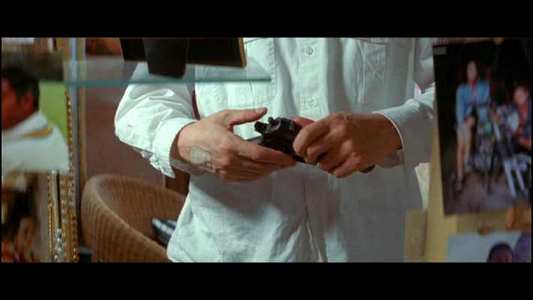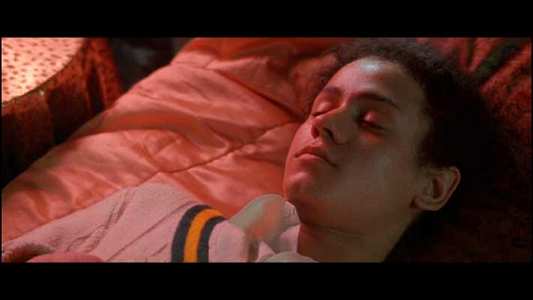Review of Crying Game, The
Introduction
A surprise critical and commercial hit, Neil Jordan’s 1992 thriller combined well-worn genre conventions with Jordan’s own idiosyncratic thematic interests. When British soldier Jody (Forest Whitaker) is abducted by a rag-tag group of IRA terrorists, the job of guarding the prisoner in what may be his final days is given to mild-mannered Fergus (Stephen Rea) who soon develops a strong bond with his prisoner. However, when Jody is accidentally killed during an army raid, Fergus changes his identity and moves to London in the hope of tracking down the dead man’s sweetheart, Dil (Jaye Davidson) a glamorous singer/hairdresser with a difference. Fergus soon falls under Dil’s spell but becomes entrenched in danger when his past comes back looking for him.

Video
Although there are a few traces of dirt in some scenes, this is a good looking transfer that effectively brings out Ian Wilson’s stylish photography.

Audio
An average stereo track.

Features
The theatrical trailer unevenly combines the twisted elements of romance, suspense and organized violence into a crowd-pleasing whole. But that’s all you’re getting on this bare-bones back catalogue disc.

Conclusion
An infamous headline-stuffer during its release, ‘The Crying Game’ can now be seen for what it is: A monotonous Hitchcockian melody with a leftfield hook. Stylistically, Jordan gets better in every film, and ‘The Crying Game’ is definitely a few calculated baby-steps beyond the adolescent poetry of ‘Mona Lisa’. From the opening eerie crane across a muddy river posted behind a fairground, choreographed to the sounds of ‘When a Man Loves a Woman’, irony and foreboding are sprayed all across the canvas. The film’s poker-faced innuendo subtly imbued, Percy Sledge`s ballad never sounding so shrill and hollow.
Davidson’s barnstorming performance dominates rather too greedily, turning down the volume on Fergus’ redemption (as well as Rea’s subtle tones) and reducing him to a passive, somnambulistic presence in the film, a victim of other people’s morality rather than the purveyor of his own. Although Fergus seeks to put his violent past behind him he soon fails to become the instigator of his own atonement (a curious misstep from someone as committed to miserabalist Catholicism as Jordan.) As a result, his final act of selflessness seems all the more convenient and dramatically unsatisfying.
However, Miranda Richardson is memorably hatchet-faced as the power-suited femme-fatale from Fergus’ past; and the film’s whirl-wind of plot-twists and occasionally witty dialogue keeps anyone from taking the melodrama too seriously. However, these pleasures are small pittance for a film so highly lauded and you may begin to wonder what all the fuss was about… and then you remember.
Your Opinions and Comments
Be the first to post a comment!